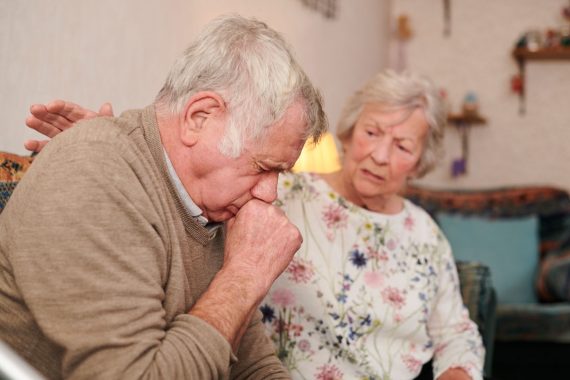A trial of heating on prescription – which helped some NHS patients with their energy bills – cut GP appointments, researchers have found.
The pilot scheme also found some evidence patients needed fewer prescriptions and had less contact with out-of-hours services.
Over last winter 823 vulnerable and low-income patients were supported by the BP-funded scheme in Aberdeen, Middlesbrough, Gloucestershire and London, after being referred by a healthcare professional including social prescribers and public health teams.
Most of those eligible for the trial had respiratory problems and were over 65. An assessment was done to estimate how much their heating would cost from September 2022 and March 2023, and the full amount was credited to their energy account.
Researchers from Sheffield Hallam University who assessed the trial, which was done in partnership with the NHS found significant improvements in quality of life as well as reduced use of the GP compared with previous years. Those taking part also had money to spend on other essentials such as food.
Before the warm home scheme, 53% of participants were only heating their home sometimes, rarely or never.
In all 93% of participants indicated that they place greater importance on being warm than they did before the trial and more than nine in ten healthcare professionals involved said they would like to see the scheme repeated.
Most patients had heated their homes more than previous years, half of them by at least two degrees.
As a result of the trial, 79% of recipients found it had a positive impact on their physical health and 70% said that it improved their mental health.
Emerging evidence from the trial point to a statistically significant reduction in the number of self-reported overnight stays in hospital.
By prescribing warm homes, health professionals also found that they were able to signpost recipients to additional support services such as energy advice that can provide tailored support, the analysis found.
The value for money assessment suggests for every £1 of expenditure, the project supported £5.1 of wellbeing social value to patients.
Patients also had the opportunity for their homes to be assessed for energy efficient measures that could reduce the cost of heating in the future.
Dr Rose Chard from Energy Systems Catapult who designed the scheme said: ‘Thousands of people are at risk of ill health and dying every year because of cold homes.
‘Scaling up the trial this year was about more than simply paying energy bills, we wanted to explore an efficient way to target people whose health is at risk and provide the support that they need to achieve a warm home permanently.’
The trial has laid the groundwork for scaling up the project across the UK, she added.
‘We’ve seen firsthand that it works and makes a tangible contribution to the lives of recipients.’
Dr Selvaseelan Selvarajah, a GP in Tower Hamlets said addressing wider determinants of health had led them to pioneer social prescribing at the Bromley By Bow Health Centre.
‘The majority of patient presentations in deprived areas are due to social issues leading to ill health and this is well documented.
‘So I would welcome schemes like this, but, we must be mindful that GPs are very stretched, particularly going into winter so while we can host and promote these services, the schemes are best delivered by social prescribing teams working closely with wider partners like local authorities, social care and voluntary sector.’
Pulse October survey
Take our July 2025 survey to potentially win £1.000 worth of tokens















Suppose fixing the patient’s boiler is negligent (and GMC reportable), if one doesn’t also arrange free energy for the patient?
a cynic might suggest that the extra time taken up with non-medical tasks like assessing and prescribing heating ( I suppose a home visit with room thermometers was necessary, and a check of the bank accounts?) meant that GPs were not available to have as many consultations with ill people, so wrote fewer prescriptions and healed less sick people.
i think this is a Public Health and Social Services job, and should be resisted strongly by GP representatives, even though I believe people should have adequate food and heating, and insulation, and company…
Heating can cut GP visits and prescriptions, trial shows
Perhaps we can also prescribe love respect and kindness whilst we are at it
Prescribe breathing for the truly stupid?
High time social inequalities not medicalised and making us a one stop shop for the socially disadvantaged. Sure, chronically ill need extra heating but a prescription? I think not.
At least while checking the temperture of the housing establishment, we have time to check for mould, sort out the online banking, fix a quick meal (or meals for the whole week to be refrigerated, lablelled and healthy) and take them out to the part for a quick walk and sunshine. All the time in the world to fix of these problems new doctors are spending 100k on learning.
How about prescribing hoovers, mops as well as soap so they keep clean and infection free too? How ridiculous have things become.
Giving poorer people money makes them feel better?
Meanwhile, what pathology is not being diagnosed in those not attending?